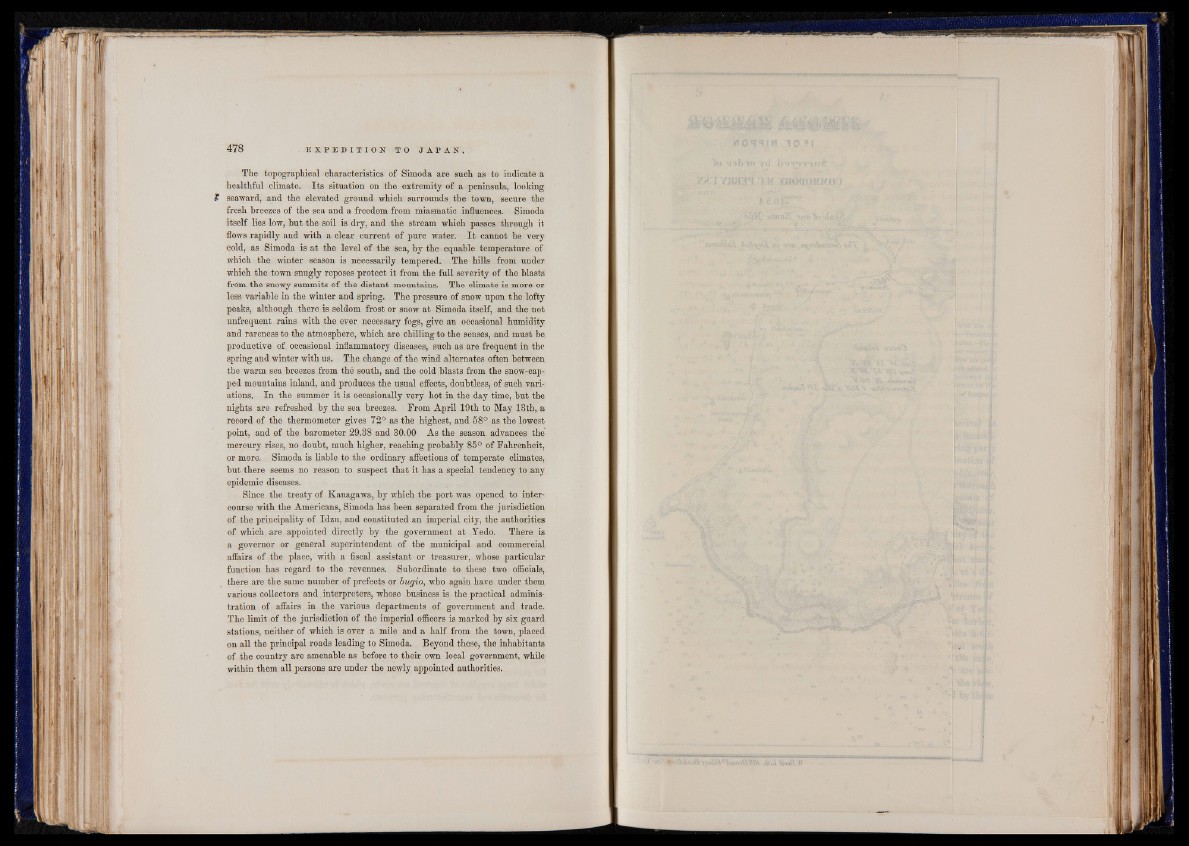
The topographical characteristics of Simoda are such as to indicate a
healthful climate. Its situation on the extremity of a peninsula, looking
i seaward, and the elevated ground which surrounds the town, secure the
fresh breezes of the sea and a freedom from miasmatic influences. Simoda
itself lies low, but the soil is dry, and the stream which passes through it
flows rapidly and with a clear current of pure water. I t cannot be very
cold, as Simoda is at the level of the sea, by the equable temperature of
which the winter season is necessarily tempered. The hills from under
which the town snugly reposes protect it from the full severity of the blasts
from the snowy summits of the distant mountains. The climate is more or
less variable in the winter and spring. The pressure of snow upon the lofty
peaks, although there is seldom frost or snow at Simoda itself, and the not
unfrequent rains with the ever necessary fogs, give an occasional humidity
and rareness to the atmosphere, which are chilling to the senses, and must be,
productive of occasional inflammatory diseases, such as are frequent in the
spring and winter with us. The change of the wind alternates often between
the warm sea breezes from thè south, and the cold blasts from the snow-capped
mountains inland, and produces the usual effects, doubtless, of such variations.
In the summer it is occasionally very hot in the day time, but the
nights are refreshed by the sea breezes. From April 19th to May 13th, a
record of the thermometer gives 72° as the highest, and 58° as the lowest
point, and of the barometer 29.38 and 30.00 As the season advances the
mercury rises, no doubt, much higher, reaching probably 85° of Fahrenheit,
or more. Simoda is liable to the ordinary affections of temperate climates,
but there seems no reason to suspect that it has a special tendency to any
epidemic diseases.
Since the treaty of Kanagawa, by which the port was opened to intercourse
with the Americans, Simoda has been separated from the jurisdiction
of the principality of Idzu, and constituted an imperial city, the authorities
of which are appointed directly by the government at Yedo. There is
a governor or general superintendent of the municipal and commercial
affairs of the place, with a fiscal assistant or treasurer, whose particular
function has regard to the revenues. Subordinate to these two officials,
there are the same number of prefects or bugio, who again have under them
various collectors and, interpreters, whose business is the practical administration
of affairs in the various departments of government and trade.
The limit of the jurisdiction of the imperial officers is marked by six guard
stations, neither of which is over a mile and a half from the town, placed
on all the principal roads leading to Simoda. Beyond these, the inhabitants
of the country are amenable as before to their own local government, while
within them all persons are under the newly appointed authorities.
I
V
h
1 1